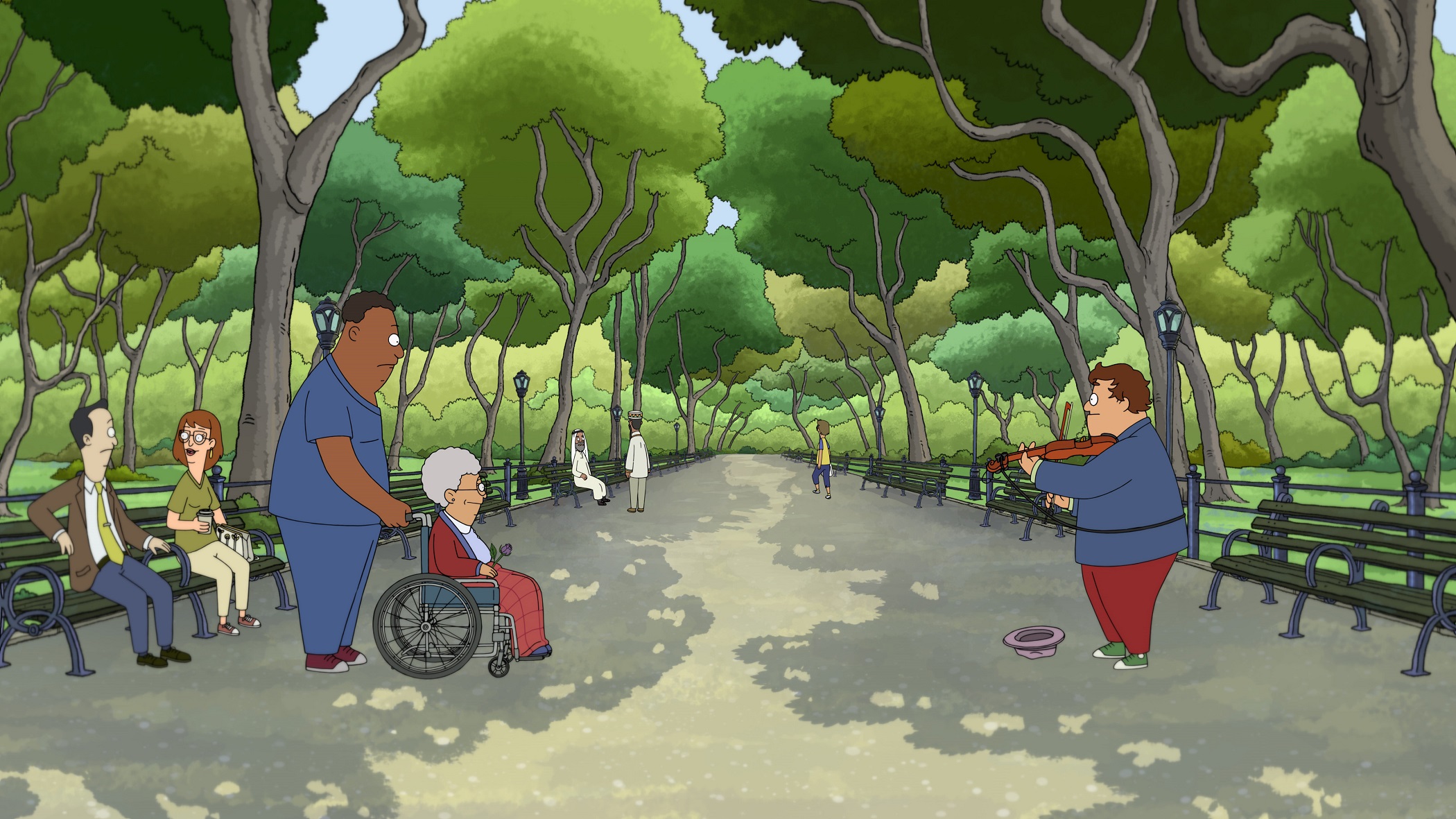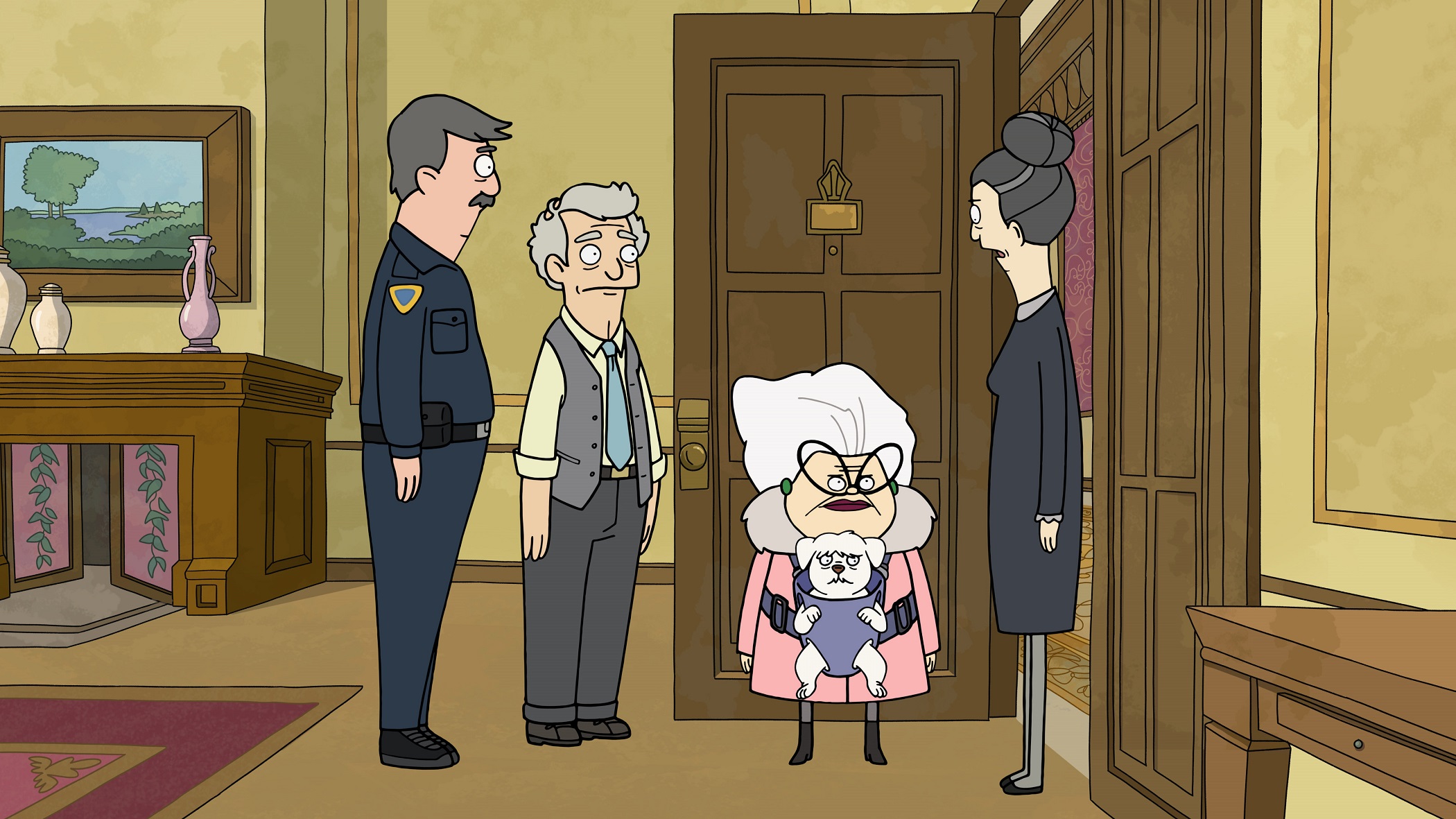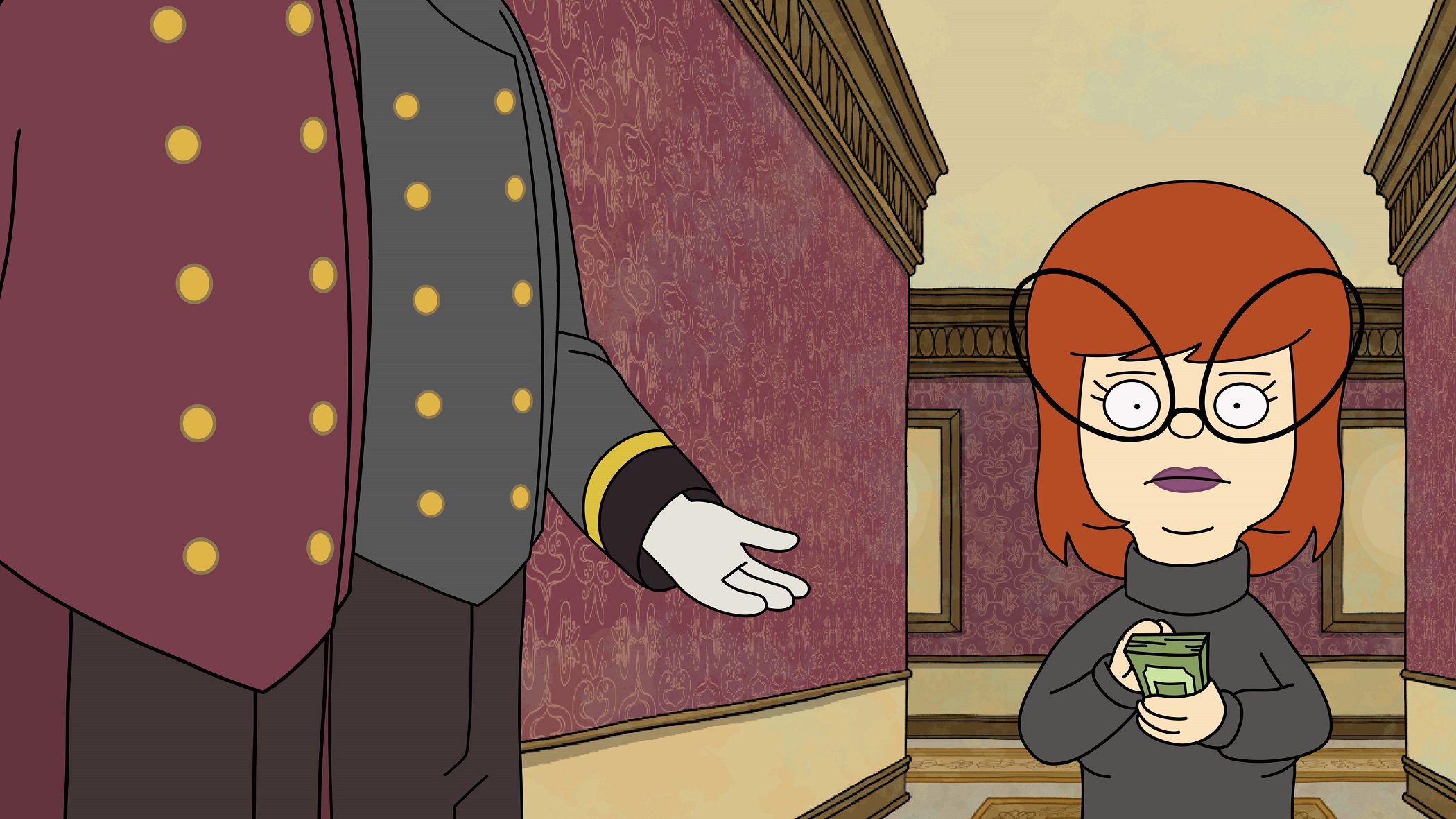What to Watch Verdict
Another format-breaking episode results in the best half-hour of 'Central Park' yet.
Pros
- +
🎤 The patience in letting a single story unfold with fewer frantic songs than usual.
- +
🎤 Some good byplay between Henry Winkler and Stanley Tucci.
- +
🎤 An unexpectedly emotional finale.
Cons
- -
🎤 Only in an episode where he barely talks does Josh Gad's character make an impact.
- -
🎤 This show's overarching plan continues to be baffling and potentially undeveloped.
- -
🎤 No Tillermans at all is admittedly a bit disappointing.
This post contains spoilers for Central Park
Check out our last review here.
Six episodes into its second season, Central Park is continuing to shake things up. Where the first season was more centered around the potential threat of the very rich Bitsy Brandenham (voiced by Stanley Tucci) attempting to purchase Central Park and gut it from the inside out, the second season has been a wild grab bag of plot and character. Just as the third episode, “Fista Puffs Mets Out Justice”, went far outside the box both visually and in its storytelling to break with the house style of Central Park, the same is true of the surprisingly tender and emotional “The Shadow”.
Birdie the busker (co-creator Josh Gad) kicks off the episode by making it very clear that “The Shadow” won’t be like other episodes. We get a super-quick shot of the Tillerman family sitting at their dining room table, before moving past them entirely. The first 75% of the episode focuses on Bitsy, her assistant Helen (Daveed Diggs), and an insurance claims adjuster named Hank voiced by Henry Winkler, the latter of whom is on the site of Bitsy’s hotel to investigate a mysterious theft that he believes was committed by a once-famous cat burglar of New York socialites, known as the Shadow. Hank the adjuster reveals that when the Shadow originally struck more than 55 years ago, he was a young police officer who couldn’t shake the case, especially after the burglar managed to escape without being caught.
Though Diggs sings the 60s-styled theme song for the Shadow (potentially implying that Helen might have been involved in it back in the day), Bitsy herself has a shocking revelation, once it becomes clear that the adjuster may share with the press that the Shadow is back, thus ruining the reputation of the hotel. Bitsy knows that this most recent theft isn’t the work of the Shadow...because she was the Shadow. In a flashback, accompanied by a beautiful song performed by Keala Settle, we see that young Bitsy was angry at her emotionally distant father and chose to lash out by robbing his rich hotel guests, and was able to avoid detection because she was quiet and “a girl”. Hank then reveals that the recent theft was a setup he planted, simply to confirm his decades-old suspicion that Bitsy was the real Shadow, a suspicion that quickly manifested into a brief moment of romantic love -- accompanied by another beautiful song performed by Broadway star Gavin Creel. Bitsy and Hank depart, presumably to not run into each other again.

That leaves the last few minutes of “The Shadow”, as Birdie emphasizes that the moral is that what matters isn’t if 99% of people ignore you -- as was the case with Bitsy back when she was young and thieving -- but that at least one person sees you and appreciates you. That transitions into a wordless finale, “Birdie Presents A Thing on Strings” as the caption identifies it, in which we see Birdie on his violin in the park, playing day after day and barely making a dent, except for an elderly woman in a wheelchair being tended to by a care worker. The montage continues as we see Birdie continue playing for the woman, until one day, just the worker is there, silently confirming that she was given a (presumably) terminal diagnosis, placed in hospice, and found joy in her final days from Birdie’s performances. And then, in the final moments, Birdie sees that his music is now inspiring a little boy to dance gaily in the park.
And that’s the episode. “The Shadow” is both tonally very different from everything else Central Park has ever done, and proudly so, and also probably its best single installment to date. It’s one of the few times that Central Park has effectively humanized the Mr. Burns-esque Bitsy. The show has previously made clear that Bitsy’s relationship with her family was so fractured as to lead her to her own warped worldview, but usually in quick bites and bursts of humor. This time, as we get a longer look at Bitsy’s childhood, even as we only hear Tucci providing narration (and Settle singing through young Bitsy’s choices), her decision to become a thief, if only for a little while, makes emotional as well as logical sense.
It helps that the section with Bitsy and the weary adjuster played by a very game Winkler still has enough of the rapid-fire dialogue and wit that’s now something of a hallmark for Central Park. We learn early on that the Shadow’s calling card was a used chocolate wrapper fashioned in the shape of a penis and testicles (as a rebellious statement on Bitsy’s part towards her dad); once Hank knows for sure that Bitsy was the Shadow, she says, “Would you like a tiny penis?” and he immediately responds matter-of-factly, “Already have one.” If the entire episode leaned too hard on pathos, it would be a little much, but jokes like that cut through the nostalgia very effectively.
The latest updates, reviews and unmissable series to watch and more!

The final chunk of “The Shadow” is fascinating if only because it’s the first substantial amount of screen time Birdie’s had in the second season of Central Park, and ironically enough, is the first time the show has emphasized this season why he’s still around...even though we barely hear Gad. The first season explored his role as narrator in some depth, but now that it’s been resolved, Birdie has felt like even more of an afterthought this season. (Through six episodes, he’s really only interacted with the Tillermans a couple times, and very briefly.) “The Shadow” doesn’t exactly solve the issue -- learning what makes Birdie keep at his busking in spite of barely getting through to the countless people who pass his hat every day is all well and good, but the fact that it comes at the close of an episode that deliberately breaks format says something about his presence.
And yet, it’s hard not to watch the finale of “The Shadow”, one that feels mildly indebted to the opening of the Pixar film Up with its sweet and sad, dialogue-free and music-heavy montage, and be moved. Although Central Park has been fairly bighearted from its first episodes last season, that emotion has often been centered on the Tillermans themselves. For this episode, by focusing on two characters who have been borderline obnoxious from the start but giving them more dimension than previously extended, Central Park does a good job of expanding its world while staying relatable.
Josh Spiegel is a freelance cultural critic who has been published in Slashfilm, SyFy, ScreenCrush, The A.V. Club, The Hollywood Reporter, The Washington Post and others. His favorite films include Singin’ in the Rain, The Rocketeer, Pinocchio and A Matter of Life and Death. His favorite TV shows include Ted Lasso, Only Murders in the Building, Deadwood and Lost. He lives in Phoenix with his wife, two sons and too many cats.


